Seeing a little heartbeat flickering on the monitor, Kate Sonley could feel a wave of joy and relief washing over her.
After suffering two miscarriages, the early days of this pregnancy felt like walking a tight rope.
Every little twinge had Kate on red alert, offering a painful reminder of the trauma of her recent past.
But this time it was different.
She’d reached the fabled 12-week scan and was being told everything was looking great.
‘I was just carrying on assuming everything was going to be fine’
Because the vast majority of miscarriages occur before 12 weeks, that scan is looked upon as a major milestone.
The happy news prompted her to start buying baby things and dreaming about the future with her little one.
“Seeing her on that 12-week scan, it was amazing,” Kate said. “I had been absolutely terrified of doing anything that put the baby at risk.
“But now I was just carrying on assuming everything was going to be fine.”
Kate soon learned her baby was a girl – who she’d go on to name Amber – and the pregnancy was progressing nicely.
But things started to unravel at her anomaly scan, when doctors at Raigmore Hospital in Inverness identified that her baby may have a small hole in her heart.
They didn’t seem particularly worried at that stage, but arranged a scan with a cardiologist in Glasgow to allow a closer look.
“I’d been weepy over that weekend,” Kate said. “But they were saying ‘don’t worry, a hole in the heart is fixable and will probably close before birth.
“That meant I went to Glasgow feeling more reassured.”
Amber’s diagnosis
A lengthy scan followed.
Kate realised there was bad news on the way when she was moved into a private room to discuss the findings.
She hadn’t even sat down when a consultant told her they believed her baby had a chromosome problem.
Their diagnosis was Edwards or Patau’s syndrome, two serious genetic conditions.
The phrase they used was that these were “not compatible with life”.
Kate was 20 weeks pregnant at the time.
She said: “I just remember my knees going from under me. I was hysterical.
“I didn’t know anything about these conditions but not compatible with life, that was very blunt.”
What is Edwards’ syndrome?
The results of further tests confirmed a diagnosis of Edwards’ syndrome, also known as trisomy 18.
It is a rare but serious condition that affects how long a baby may survive.
Many babies with this syndrome die before or shortly after being born but according to NHS statistics, around 13% will survive until their first birthday.
When Kate was told she needed to make it to 24 weeks pregnant to get a birth certificate for Amber, that became her new goal.
She spoke to consultants, paediatricians, charities and other mums going through a similar thing.
There was even helped offered by a global trisomy expert in the United States, who advised her on what she’d been seeing on her tri-weekly scans.
Kate was effectively living at the hospital – no mean feat for someone who is based more than an hour away in the south Highlands.
Life revolved around appointments and discussions about all the possible outcomes.
There wasn’t room for anything else.
She was told the likelihood was that she’d lose Amber during the pregnancy and wouldn’t get to birth.
But against the odds, after 37 weeks of pregnancy, Amber was born on September 14, 2021.
The ups and downs of trisomy 18
The pain of planning your child’s funeral before they are even born is one that you wouldn’t wish on your greatest enemy.
Confronted with the reality of the situation, that’s what Kate had to do.
But as Amber continued to survive, her mother was able to start planning for her life too.
“I wasn’t only grieving the possibility of losing her,” Kate said. “Even if she lived, it was grieving the life she should have had.
“When I got to 30 weeks, I realised she had a chance to live. I really wanted to meet her alive, so I fought for her.”
The first five weeks of Amber’s life were spent in the special care baby unit.
There were many ups and downs. There would be a setback but then she’d recover and things seemed to be going well again.
Amber moved into a children’s ward at Raigmore and plans were drawn up for her to go home with her mum.
But two days before that happened she became critically ill and needed to be flown to Glasgow.
More ups and downs followed until Kate decided to bring Amber home for the first time, two and a half months after she was born.
The children’s charity Chas provided incredible round-the-clock hospice care in Kate’s home, allowing her to enjoy some time with Amber.
Kate took her out in the pram, co-slept with her and her Labrador Pandora was instantly besotted.
Amber’s grandparents also had the opportunity to hold her for the first time.
But a difficult period followed.
And two weeks after going home, Amber died in her mother’s arms on December 8, 2021.
She was three months old.
Finding reasons to keep going
During Kate’s time with Amber – who she called her “little fox” – the routine was stressful and chaotic.
But after her passing, Kate missed it.
She missed the weight of her baby in her arms. She missed the security of knowing there were doctors and nurses on hand to look after her.
Life since then has been challenging.
“I feel like my mental health has gone off a cliff,” Kate, 46, said.
“It’s really hard to tell people what you want or what you need when you don’t know yourself. When really, the one thing you want is something no one can give you.
“I just try to find anchors to survive.”
Among those anchors are her daughter Coreigh, 27 – who Kate had when she was still in her teens – and grandson Oliver.
The charity Soft UK, which specialises in children affected by trisomy 18 and 13, has also provided invaluable support and a link to other people suffering through a similar thing.
Simba, a charity which helps honour babies who were stillborn or miscarried, also helped through Kate’s earlier miscarriages.
The severe trauma attached to Kate’s loss means it’s never been about healing.
Instead, her focus is simply on finding reasons to keep going.
Kate said: “I like to imagine Amber is now dancing in the stars. I love to look up at the night sky and moon and think of her watching over me and her big sister.
“People really need to talk about baby loss more, but I also I want more people to know about trisomy 18.
“To know what it is and know that these children are compatible with life.
“She did live. It may have only been for three months, but she mattered.”
Baby Loss Awareness Week
Baby Loss Awareness Week is a safe space for anyone touched by pregnancy and baby loss to share their experiences and feel that they are not alone.
It runs from October 9 to 15.
The week finishes with the global “wave of light”, a globally recognised event.
Families are invited to light a candle at 7pm local time and leave it burning for at least one hour to remember all babies that have died too soon.
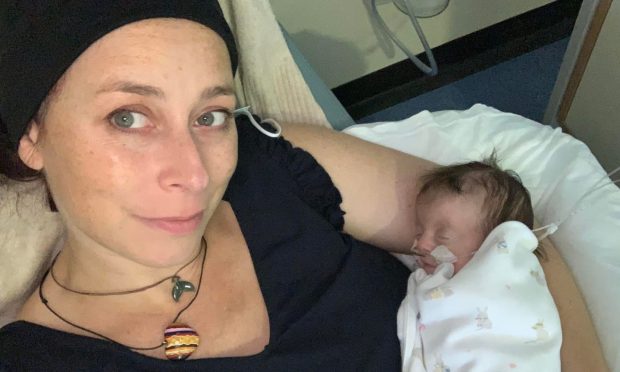
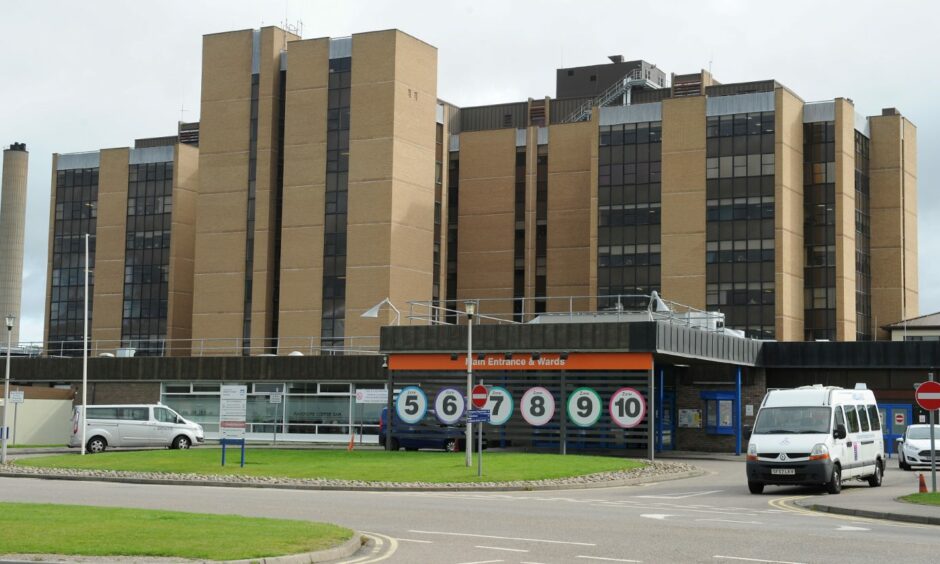
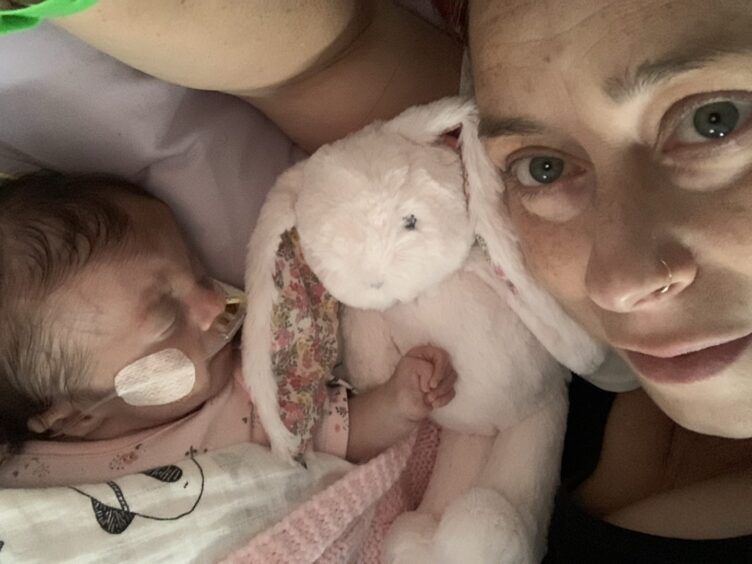
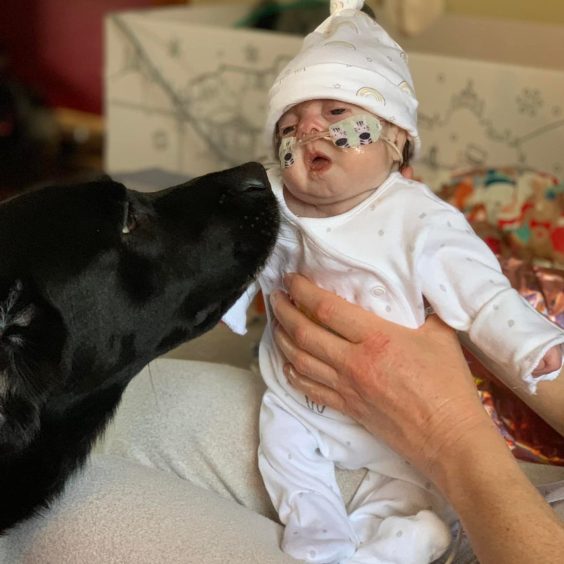
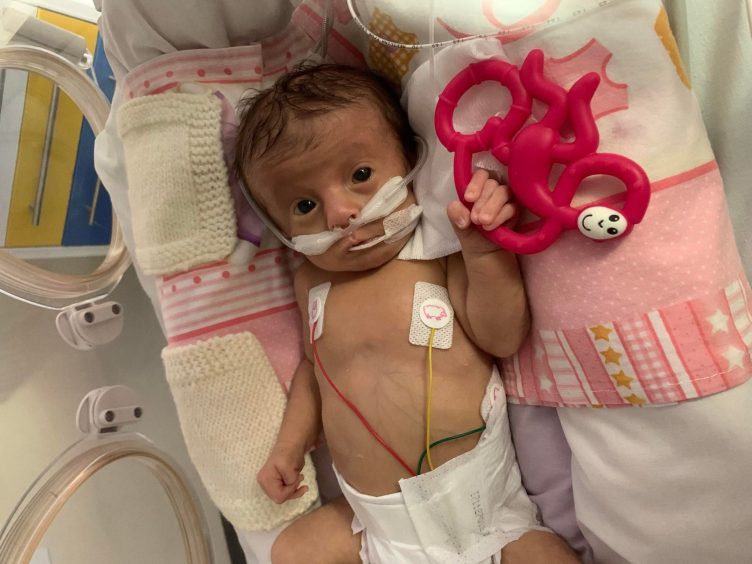
Conversation